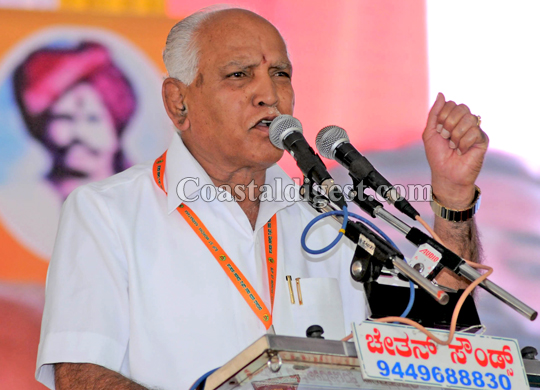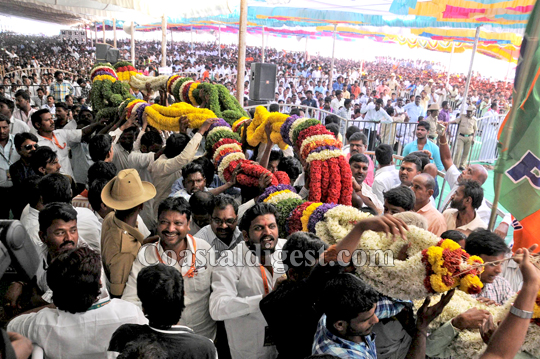Lingsugur (Raichur dist), Oct 24: State BJP president B?S?Yeddyurappa on Sunday promised that members of the Valmiki community would be given 7.5% reservation if the BJP came to power after the next Assembly elections.

He said that the quota would be provided within the framework of the Constitution.
The former chief minister was speaking after inaugurating the Maharshi Valmiki convention organised by the state ST?morcha of the BJP.
Yeddyurappa announced that a separate commission would be formed to study
the conditions of the scheduled tribes (STs) in the state, if the party was elected to power.
He criticised the Congress government in the state for not taking pro-people measures. Probity and development had taken a backseat in the present dispensation, the former chief minister said.
Muralidhar Rao, the incharge of the party affairs in the state, said that the BJP should be brought to power in the next Assembly elections, if the development works undertaken by the central government had to reach every village in the state. K?S?Eshwarappa, leader of the Opposition in the Council, said that the Congress government had cheated the dalits, backward classes and the minorities, after coming to power in their name.
Jagadish Shettar, leader of the Opposition in the Assembly, said that the Siddaramaiah government was on its way out. Former deputy chief minister R?Ashoka charged Siddaramaiah with allowing his ministers to loot the exchequer. MLA?C?T?Ravi opposed the government's move to celebrate Tipu Jayanti. A huge procession was taken out on the streets of the town prior to the convention.










Comments
Karnataka don't want to see yeddy, Chaddi and his buddy again.
ok good decision by yeddi.... 7.5% for valmiki rest of all for shobha....
cheater ...cheddi
there should be limit for wrong things, if it repeats again again and crossing byond the limits called CHEATER
Ye aadmi kisika ho hi nahi sakta, apne matlab ke liye BJP ko dhoka de kar KJP banaya aur haar gaya, phir se ye matlabi chor BJP me mila....kya isska koi bharosa kar sakta hai
Add new comment